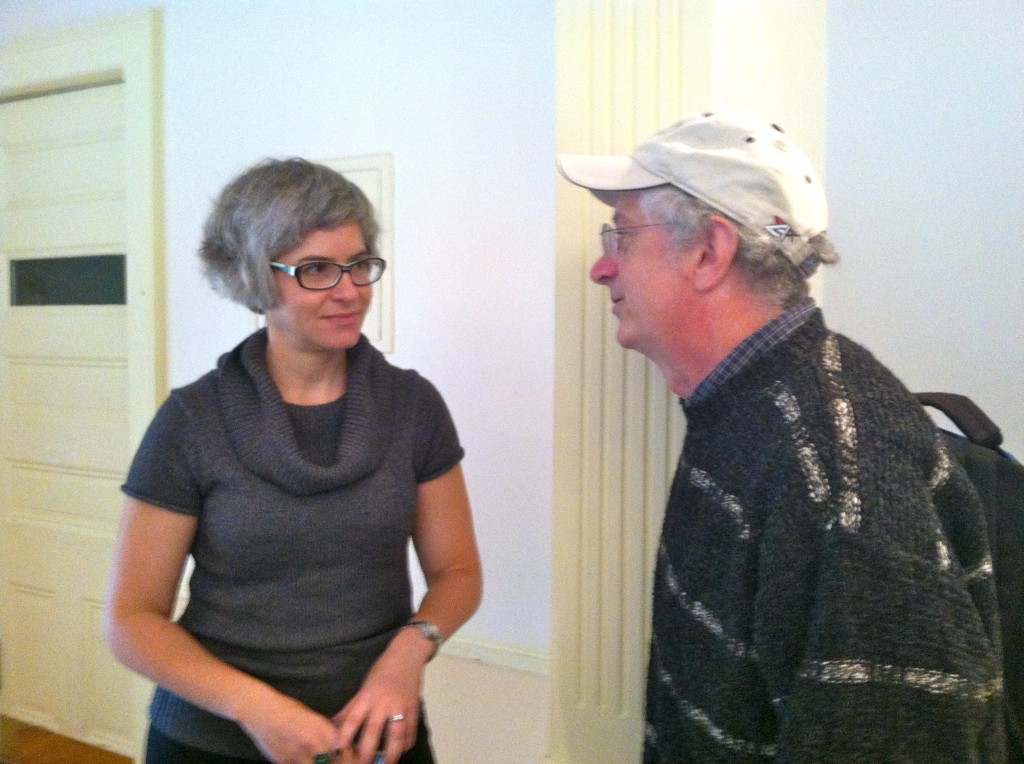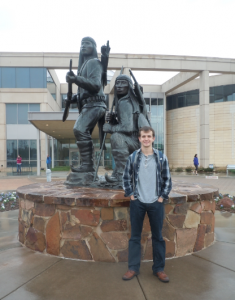Home » Articles posted by Maia Madison
Author Archives: Maia Madison
Michael McLean: Senior Honors Thesis

Trinity senior Michael McLean has always been fascinated by Native American history. Particularly, he sees its underrepresentation in mainstream United States history as a striking opportunity for research. A visit to the Cheyenne River Reservation in South Dakota last winter and related coursework at Trinity motivated him to pursue a senior thesis on the impact of the Civil War on Indian territory.
McLean is also a recipient of the Colin Leroy ’10 Research Fund, which assists history majors with research-based travel and other projects.
[Editor’s Note: History@Trinity will publish soon an article describing the Colin Leroy ’10 Research Fund program, which was established in 2012 to help seniors and rising seniors conduct research for their senior theses.]
Following a recent visit to Oklahoma sponsored by the fund, he has kindly provided History@Trinity with the following statement on his trip:
“From October 23-27, I traveled to the Oklahoma Historical Society in Oklahoma City, in large part due to a grant from the history department set aside for thesis research.
My honors thesis, “We Thought We Had Some Trouble Last Year: Destruction, Survival, and Community during the Civil War on Indian Territory,” is focused on what is today Oklahoma. I am also approaching this subject from the bottom-up. Therefore, the archives in Oklahoma were extremely useful. I was able to use letters, diaries, ledgers, rosters, and war claims to better understand the everyday experiences of regular civilians and soldiers in the area, especially with regards to food, communication and seasonality.
I will specifically be looking at the surprising adaptations that were used during this tumultuous period and how people were able (or forced) to create and maintain communities for their survival.
I am sincerely grateful towards the History Department and the parents of Colin Leroy ’10, who created the research fund, for affording me this opportunity.”
The History Department commends McLean and all other senior thesis students on their hard work.
We also encourage current juniors to consider writing a thesis next year. Please contact your academic advisor and visit the application procedure page available on this website through the menu that appears at the top for more information.
Lecture: Looking for War in the Landscape

On October 23, Trinity welcomed Megan Kate Nelson, a cultural and environmental historian with two published books who currently teaches at Brown University. She led a discussion entitled “Looking for War in the Landscape/Looking for Landscapes in the War” in which she analyzed the Civil War’s impact on the land of the United States and vice versa.
Nelson conducted extensive research in Virginia guided by a fascinating question: how can we access the experiences of the Civil War? The answer, she concluded, lies right beneath our feet: the land. In her research, Nelson studied “earthworks” and other physical remains of war. Some of these lay unnoticed on the outskirts of suburbs and others were formally preserved, and still others are missing. She found that the experience evoked by these earthworks was a reflection of their location and the landscape itself.
Nelson’s current research involves a narrative history of the Civil War in the Southwest, where the diverse eco-regions of New Mexico were the site of biological warfare. Whether concerning natural or built landscapes, Nelson’s insight into the diverse connections between land and warfare is compelling for historians and non-historians alike.
